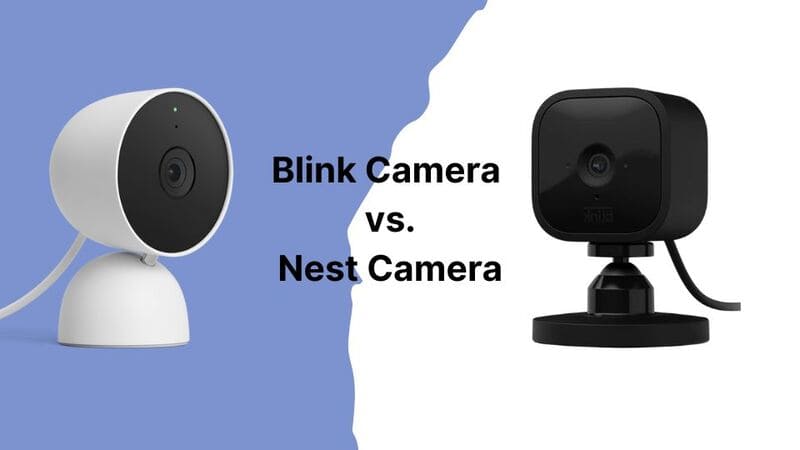Where are Dahua Cameras Manufactured?
Dahua Technology, a leading CCTV manufacturer in video surveillance, has its main headquarters at No. 1399 Binxing Road, Binjiang District, Hangzhou, along with a key manufacturing site, the Dahua Smart IoT Industrial Park in Fuyang District. This park spans 512 acres and uses advanced manufacturing technologies to boost production and quality.
1. Dahua Cameras’ Primary Manufacturing Base: China
Dahua’s main manufacturing operations are in Hangzhou, where the company was founded in 2001. Key features of the Hangzhou facility include:
- An 800,000-square-meter smart manufacturing campus
- Automated production lines
- Research and development centers
- Modern testing facilities
Besides Hangzhou, Dahua has additional manufacturing sites in other Chinese cities:
- Zhejiang Province: Focuses on Dahua security camera production
- Chengdu: A center for component manufacturing and assembly
- Wuxi: A digital technology park for product innovation
2. Where are Dahua Cameras Manufactured Globally?
To expand its global presence and improve production efficiency, Dahua has also set up facilities outside China:
-
Vietnam Manufacturing Center
- Location: Ho Chi Minh City
- Established: 2019
- Focus: Assembly and production of Dahua CCTV cameras for Southeast Asia
- Capacity: Produces 2 million units annually
-
Indian Manufacturing Unit
- Location: Mumbai
- Purpose: Local assembly and testing of products
- Market focus: Serving the Indian subcontinent
- Production: Security cameras and video recorders
Impact of Manufacturing Location and Quality Assurance
Dahua Technology manufactures its cameras in China, Vietnam, and India. Each location serves specific market needs and helps ensure the quality and availability of its products.
1. Dahua Cameras’ Manufacturing Quality Standards
Dahua enforces strict quality control across all its security camera factories. Key practices include:
- Standardized Production Processes: Uniform protocols keep production consistent, using automated lines and real-time monitoring.
- Unified Quality Control Systems: A central system tracks production data and performs regular reviews to catch defects.
- Staff Training Programs: Continuous training keeps employees skilled in quality assurance, supported by regular assessments.
- Cross-Facility Quality Audits: Monthly internal audits and annual third-party inspections maintain high standards.
2. Dahua Cameras’ Price Impact Analysis
Manufacturing location affects pricing due to:
- Labor Costs: Regional differences in labor costs can cause a 15-25% price variation.
- Transportation Costs: Shipping prices vary depending on the distance from the factories to distribution centers.
- Import/Export Factors: Tariffs and trade agreements can impact final pricing, adding logistical complexity.
- Regional Market Demands: Local competition and certification fees influence price strategies for each market.
By distributing production across these locations, Dahua ensures high-quality control and adapts to regional market demands efficiently.
Dahua Cameras’ Global Manufacturing Presence
Dahua Technology has a strong global manufacturing presence, allowing it to meet customer needs in different regions. Here are the key details:
1. Asia Pacific
- Headquarters: Based in Hangzhou, Zhejiang Province, China, serving as the central hub for manufacturing and research.
- Manufacturing Facilities: Several plants across China focus on advanced surveillance technologies and AIoT solutions.
2. North America
- Recent Changes: Dahua Technology USA was sold to Luminys Systems, a Foxlink subsidiary. This sale has reduced Dahua’s direct presence in the U.S. market due to regulatory challenges and sanctions.
3. South America
- Market Presence: Expanding distribution networks. While there are no specific manufacturing facilities mentioned, Dahua customizes its surveillance solutions to meet local needs and aims to grow market share through partnerships and localized products.
4. Europe
- Operations: Active in various European countries. Dahua focuses on meeting local regulations and standards, offering products for sectors like transportation and retail.
5. Africa
- Growth Strategy: Expanding its presence by working with local distributors and system integrators. Dahua aims to address regional security challenges with video surveillance solutions.
Dahua’s global manufacturing strategy shows its ability to adapt to regional demands while prioritizing innovation and quality.
Dahua Cameras’ Recent Developments in Manufacturing
With the establishment of a new joint venture in Saudi Arabia, Zhejiang Dahua Technology Co., Ltd. further expanded its manufacturing and marked a key step in its global growth.
1. Key Developments in Manufacturing
- Joint Venture: Dahua has collaborated with Alat, a company under the Public Investment Fund of Saudi Arabia, to establish Alat AIVisio Technology Co. Ltd.
- Investment: The venture worth US$200 million will create an automated hub for AIoT products and smart solutions.
2. Goals of the Joint Venture
- Localization: The aim is to localize production in Saudi Arabia, enhancing supply chains and allowing for shorter delivery times for projects in the region.
- Support for Smart Cities: It would contribute to the fulfillment of Saudi Arabia’s Vision 2030, in developing smart city solutions through enhancement of local infrastructure.
3. Strategic Significance
- Global Growth: This joint venture enhances Dahua’s globalization through the application of local resources and competencies while contributing to the economic diversification in Saudi Arabia.
4. Future Plans
- Product Focus: At first, it will be project-based; Dahua cameras will be manufactured, and later on, product varieties will be developed.
- Timeline: First products expected to be ready by the end of 2024 and mark Dahua’s commitment to the Middle East market on a long-term basis.
Comparison of Dahua Cameras and Competitors in Terms of Manufacturing
Dahua Technology is an important surveillance camera manufacturer in the global video surveillance market, having applied several advanced manufacturing processes and innovative camera technologies. It does not share such a manufacturing stronghold with other competitors, including Hikvision, Annke, Axis, and Reolink.
1. Manufacturing Advantages of Dahua
- Global Manufacturing Facilities: Dahua has modern manufacturing facilities worldwide, enabling efficient production that meets international standards, including ISO9001 and CE certification.
- Research and Development: Dahua invests heavily in R&D, allowing it to add cutting-edge imaging technologies, AI features, and IoT capabilities to its cameras. This focus on innovation gives Dahua a strong edge in the industry.
- Customization Capabilities: Dahua offers tailored security solutions. They provide logo customization, packaging, and app interface adjustments to meet the specific needs of business clients.
- Quality Control: Dahua maintains strict quality control throughout the manufacturing process. Every product undergoes thorough testing before shipment, ensuring durable cameras suitable for various conditions.
2. Comparison with Competitors
- Versus Hikvision: Dahua is recognized for its flexible manufacturing and innovative camera designs, distinguishing it from Hikvision, another major Chinese brand.
- Versus Annke: While Annke focuses on budget-friendly systems for consumers, Dahua cameras are built for performance and durability, making them more suitable for commercial use.
- Versus Axis: Axis Communications may specialize in high-quality niche products, but Dahua offers a better cost-to-performance ratio through its extensive automated production.
- Versus Reolink: Although Reolink provides affordable options, Dahua surveillance cameras include advanced features like AI motion detection and superior low-light performance, which surpass Reolink’s capabilities.

Dahua’s dedication to high-quality manufacturing, innovation, and customer-specific customization makes it a leading choice in surveillance solutions.







